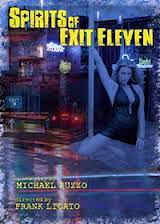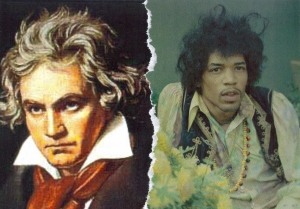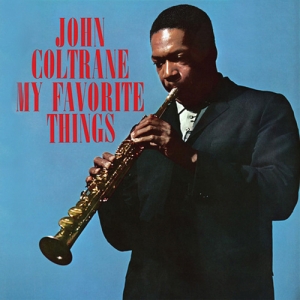- Moonlight my ass!
- The HUMBLER
- Who’s the top-selling pianist in history?
- Fly Away :(
- The Mozarts of Hair Metal
- How To Compose Today
- What time is it?
- Twins separated at birth
- To hear the world in a single note and heaven in a triad
- RIP Elliott Carter, Maestro of Thorny Complexity
- Monster Mashup
- May the best man wi… Oh, damn!
- Music for driving into trees: Sweet Wine
- Music for driving into trees
- My Favorite Things
- Mammas Please Let Your Babies Grow Up to Play Cowbells
- Claret for Clara
- Last of the Bohemians
- Guy walks into a bar
- How to break a heart with one chord
- What are oboes good for?
- Doppelganger
- Enigma

The Mozarts of Hair Metal
January 01, 2013
Playwright Michael Puzzo’s passionate drama Spirits of Exit Eleven* imagines a cranky jukebox in a pizza strip joint which patrons feed with their Friday paychecks, playing their hair-metal life soundtracks, waiting for the pole dancers to appear on the dais. As sound designer for a Theatre Row production of this play, I conferred with Michael about walk-in music — his suggestions, mine, and crew-sourced.
“Gotta have Def Leppard, AC/DC, Mötley Crüe, G’n’R…”
“Yeah, the usual suspects. Even if they’re not on our personal iPods”
“…but,” says Michael, “We must have Led Zeppelin. Must have. The Mozarts of metal.”
Mozarts of metal! Ah, I have found a musical soulmate.
________
* If you’re from Jersey, or have ever been prisoner to the Turnpike, you catch the reference.
Categories: Composers, Mozart, Events, Musicians, Led Zeppelin, Unified theory of music

How To Compose Today
December 09, 2012
Lifelong friend Shaun McNally drew my attention to this empassioned, illuminating essay by Robert Beaser on how composing has evolved over the last few decades.
Categories: Commentary, Composers, Music education, Unified theory of music

Twins separated at birth
November 28, 2012
No? The evidence:
— Both Sagittariuses
— Both thrilled and terrified princes and princesses with their playing — way beyond anyone else around at the time — and both busted up their instruments.
— Both imagined a sonic grandeur beyond what there instruments were capable of… till they advanced the technology and made it happen.
— Both were so shockingly revolutionary that composers and players are still playing catch-up.
No? Then try this:
Play your record of Beethoven’s Emperor Concerto, first couple of minutes. Imagine you’re back in 1809. You’re thinking:
“Whoa! Never heard anything like that before! Aren’t concertos supposed to start off with the orchestra charting out a theme? Not here! Ka-boom! An orchestral chord explosion. Which triggers a barrage of solo piano fireworks: ‘Who’s your daddy, now?’ Then another explosion and more solo fire: ‘Yeah, that’s right: Not your daddy’s concerto. OK, now we’ve established who’s boss, let’s play the tune.’”
Now place your tonearm down on Jimi’s “House Burning Down.” Hear any difference from the Emperor opening? No, you don’t. Not at the core. Same creative DNA. Substitute “guitar” for “piano” and you’d be loath to describe the works differently.
No? Still no?
C’mon! Just look at the hair!
(See also: http://donaldstark.com/news_notes/doppelganger)
Categories: Composers, Musicians, Unified theory of music

Watch out for that ditch!
Music for driving into trees
September 27, 2012
I have a friends-sourcing challenge for you: Suggest a name for a category of music.
Description:
• The first time you heard a piece of this type of music, it jolted you. You’d never heard anything like it before. The world stopped as you listened. Dervishes and monkeys froze in place.
• This music struck you in the gut, heart, and mind in equal measure, made your pulse shoot up, your mind reel.
• This music cracked the walls of what you thought was expressively possible. You could now imagine a creative world that was locked until this music took possession of you.
• If you’re a musician, you stood in bewildered awe at the craft: How the f* did they create this?!
• If your car stereo was cranked at the moment, your life was in peril.
My first shot:
• “Drive-into-a-tree” music
• “Drive-off-the-road” music
• “Drive-into-a-ditch” music
Please help.
Also, what music would you put in this category?
Categories: Composers, Musicians, Unified theory of music

Monkey mind
My Favorite Things
September 24, 2012
Hey kids! Try this! Place your vinyl copy of Coltrane’s My Favorite Things gently on your record player and drop the needle. Now, sit down on your yoga mat like a good little lotus and close your eyes. OK, there’s…
• Elvin Jones “on drums”: The wispy swirling world around us (like the planes overhead, birdsongs, traffic, kids at play)
• McCoy Tyner’s oscillating harmonies: Pranayam
• Coltrane’s soaring soloing: Monkey mind
OK? Fine.
Now set all that aside. Close it all out, along with your usual mantra or breath awareness routine. Instead, hop on Steve Davis’s bass line — only Davis’s bass line — and take it for a 14-minute ride to the end.
You want music to meditate by? There, that’s music to meditate by. Have fun trying to descend from that mountaintop!
And happy birthday to John Coltrane.
Categories: Meditation music, Musicians, Coltrane, Unified theory of music

Twins separated at birth?
Doppelganger
March 01, 2010
It's Doppelganger Week, when folks swaps faces for faces. Got me wondering: How about Doppelganger music?
Try this out: Play Chopin’s G Minor Ballade. Then before you exhale, put on Santana’s Europa.
For me, these two pieces are spiritual twins. I’ll try to make the case.
● They take you on the same ride. Slow and soulful at the start, the water breaks, then breathless crazed fury at the end. In a double-blind placebo-based randomized trial of listeners, cardiologists have measured the difference in heart rate between start and finish. In both instances, an increase on 45 beats per minute.
● The ride starts the same. An upward arching four-note minor-key phrase, a plea to the heavens, coming to rest on sustained notes that serve only as question marks hanging in the air.
● The ride continues along the same line. That initial phrase is sequenced a few times, adding to the pain and tension. And so it goes till near the end, when…
● All hell breaks out. The lions’ cages unlocked a feeding time. Skiing off a cliff. Freefall frenzy. Unfettered exhuberance. Full-tilt freakout.
But these parallels don’t really make the case. It’s more than the expressive arc. More than the heart-piercing harmonic and melodic language.
For me, these two pieces were drawn from the emotional well, inspired by the same muse, and tell the same story, whatever that might be. So all this half-diminished case-making is a musicologic fool’s game. Why are the Ballade and Europa dopplegangers? Because I feel it.
Next time: First movement of Beethoven’s Emperor Concerto and Hendrix’s House Burning Down.
So… What are your musical dopplegangers?
Oh… and happy 200th birthday, Piano Man.
Categories: Composers, Chopin, Musicians, Santana, Unified theory of music